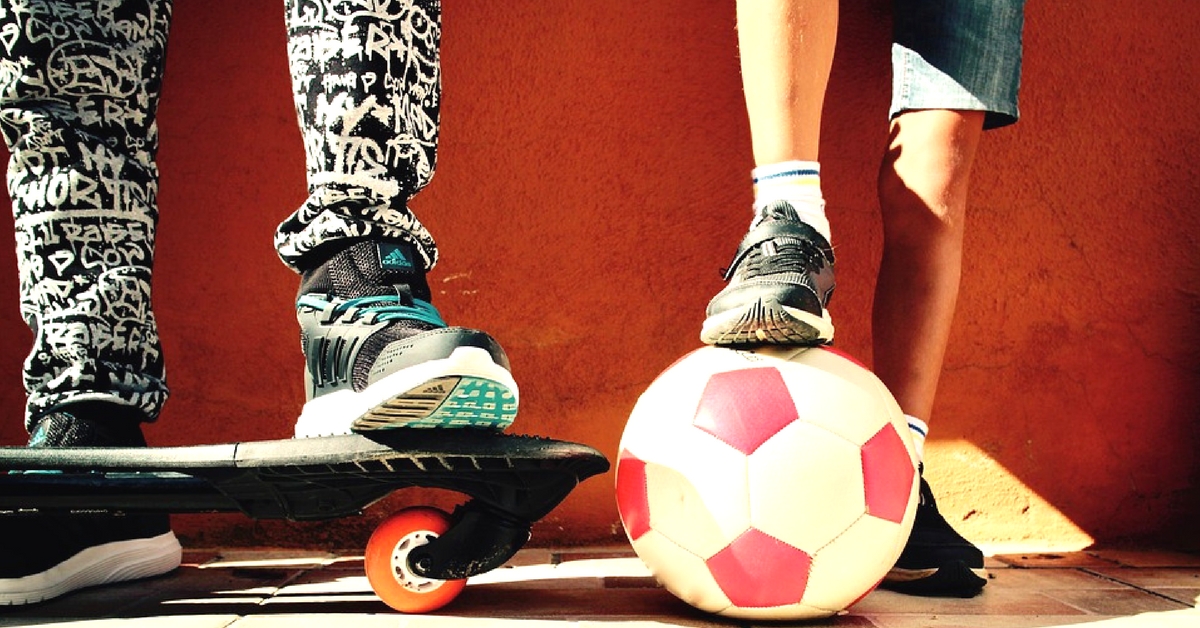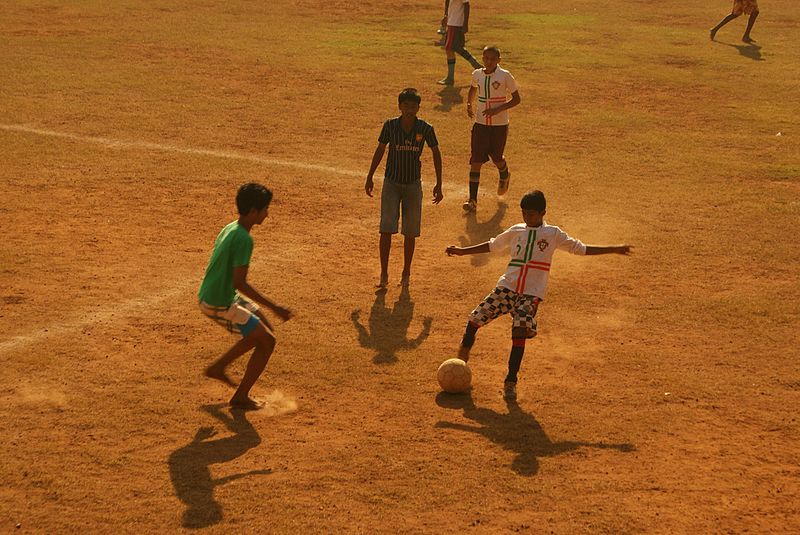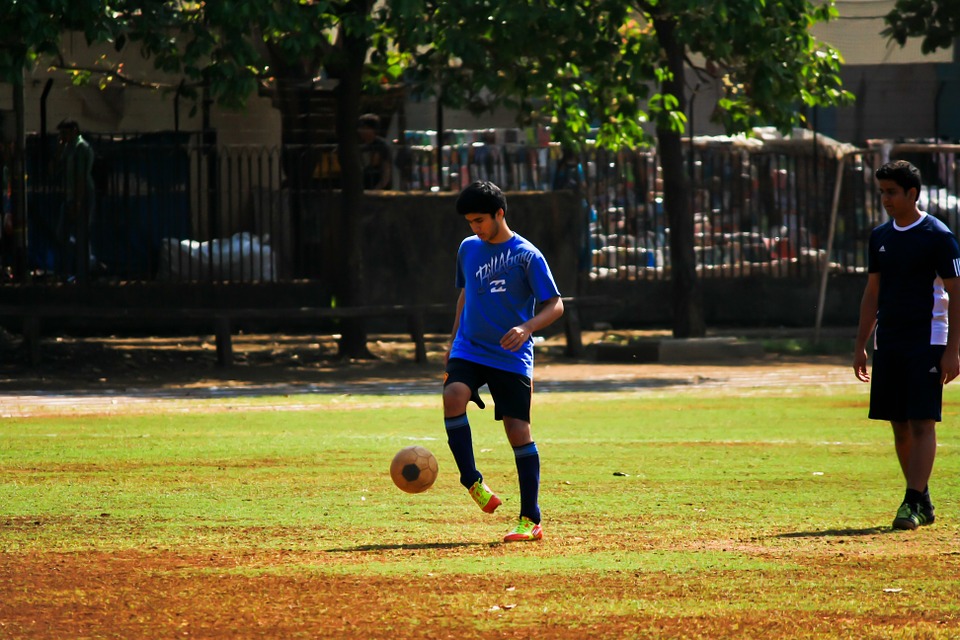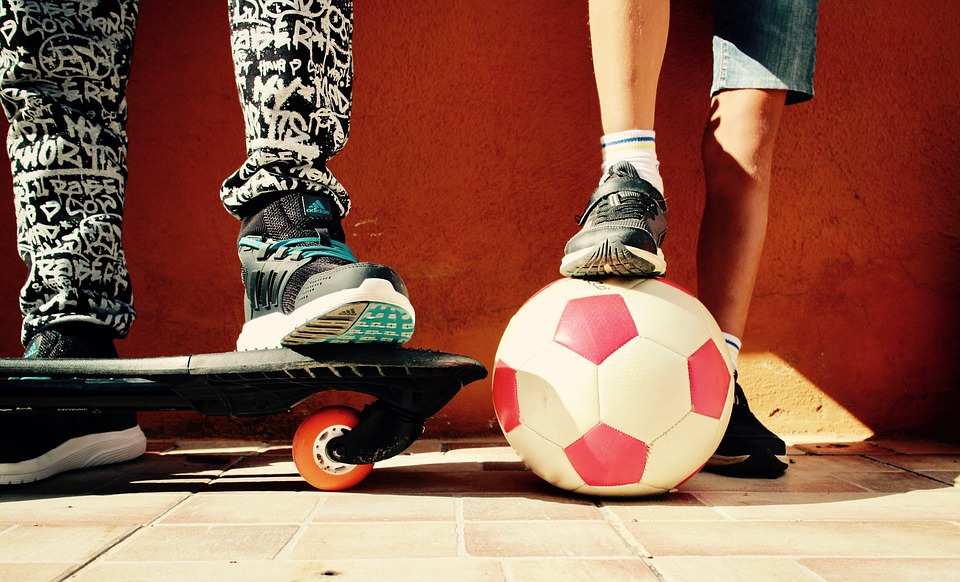Practicing Sports Is a Human Right, and Here Is Why It Can Be a Great ‘Game Changer’
In fact, the power of playgrounds is immense, and there is a definitive need to leverage them as effective tools for development for such children.

In 1978, the United Nations Educational, Scientific and Cultural Organization (UNESCO) charter became one of the first documents to identify sports as a human right—an essential element of the education system—and focused on its customisation to meet individual and social needs.
For a lot of people, the mention of the words ‘sports,’ ‘play’ and ‘games’ immediately brings in the notion of childhood signifying an inextricable relationship between the two.

Picture for representation only. Source: Wikimedia
And why not? After all, it is through sports and games that children learn to explore, invent and create, develop social skills, express their emotions, and gain confidence in their capabilities. A study conducted by the United Nations in 2003 points out that “increasing the time spent on physical education in schools does not reduce marks in intellectual subjects but rather improves the ability of some students to learn and retain information.”
Also Read: India’s Young Guns Triumph At Shooting World Cup, Bring Back Highest-Ever Medal Haul!
A nation-wide study conducted in 2016 by a leading sports education company had revealed that every third child in India has an unhealthy BMI. Interestingly, schools with more than three sessions of physical education per week have fitter children. The enrichment of physical, emotional, social and mental development of children is the most valuable contribution of sports.
In other words, the potential of sport and its role in the life of a child is seminal.

Picture for representation only. Source: Pixabay
Unfortunately, for many children, however, the opportunity to discover and grow through sport is unavailable, robbing them of some of the most significant experiences of childhood.
More than 90 percent of India’s youth never use a playground, and less than 1 percent of the country’s population under 35 has any access to organised sports. The worst affected here are children, especially those from the underprivileged sections, who drop out of school either due to poverty or to contribute to the family income.
According to data put out by the Ministry of Human Resource Development (MHRD), the national school dropout rate at the primary level was 4.34 percent in 2014–15, and it was even higher at the secondary level, at 17.86 percent. Unfortunately, 82.16 percent of the children who stay back in school also hardly have any access to organised sport, especially in the underprivileged schools. The picture is still as grave in 2018.
These children have greatly high-pressure childhoods where they are forced to take up menial jobs, get into child labour and in turn become victims of a vicious circle.

Picture for representation only. Source: Pixabay
Their domestic conditions leave them particularly vulnerable and susceptible to grave issues like substance abuse, especially tobacco.
It is estimated that every day, more than 5,500 children in India below the age of 10, try tobacco for the first time. It, therefore, becomes even more vital to make the connection between healthy minds and healthy bodies right from their formative years.
Sports can actually play the crucial role of a game changer in the lives of these lesser privileged children. This is demonstrated by the fact that children who play a sport and exercise regularly are more likely to stay physically active as adults.
In the case of children who belong to low-income and resource-poor communities, sports empowers them to become capable of developing the building blocks that lead to their personal empowerment. Playing a sport can equip these children with life and vocational skills that make them more employable, giving them a proper chance at getting real jobs and breaking their cycle of poverty.
These ‘at risk’ children can benefit enormously from playing a sport in their holistic growth including emotional, physical and intellectual development.

Source: Pixabay
In fact, the power of playgrounds is immense, and there is a definitive need to leverage them as effective tools for development for such children. There is a pressing need for more organisations to work towards advocating the importance of sport so that children from underprivileged backgrounds get the strong performance opportunities they deserve and need.
The government has already recognised the developmental aspect of sports for youngsters and has introduced schemes like the Panchayat Yuva Krida Aur Khel Abhiyan (PYKKA) to generate sports culture at the grass-roots level. The objectives of such schemes are to enhance sports infrastructure and encourage youth, especially in rural areas, to participate in sports.
(Written by Gaurav Arora)
Like this story? Or have something to share? Write to us: [email protected], or connect with us on Facebook and Twitter.
NEW: Click here to get positive news on WhatsApp!
If you found our stories insightful, informative, or even just enjoyable, we invite you to consider making a voluntary payment to support the work we do at The Better India. Your contribution helps us continue producing quality content that educates, inspires, and drives positive change.
Choose one of the payment options below for your contribution-
By paying for the stories you value, you directly contribute to sustaining our efforts focused on making a difference in the world. Together, let’s ensure that impactful stories continue to be told and shared, enriching lives and communities alike.
Thank you for your support. Here are some frequently asked questions you might find helpful to know why you are contributing?


This story made me
-
97
-
121
-
89
-
167











